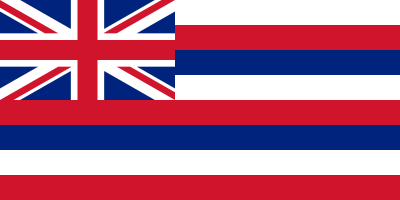Hawaii

In 2009, Hawaii passed a broad-based right of publicity statute that provides post-mortem rights and applies even to those who died domiciled in other jurisdictions. Hawaii also recognizes the common law tort of appropriation.
Statute
YES
Hawaii has passed a law that provides that “every individual or personality has a property right in the use of the individual’s or personality’s name, voice, signature, and likeness.” The statute expressly provides that the right is “freely transferable, assignable, and licensable” and devisable. The statute provides statutory damages of $10,000 or actual damages, whichever is greater.
Common Law - Right of Publicity
NO
Common Law - Right of Privacy-Appropriation Tort
YES
Hawaii recognizes a right to privacy and specifically a cause of action for the appropriation of another’s “name or picture for commercial purposes.”
Fergerstrom v. Hawaiian Ocean View Estates, 441 P.2d 141 (Haw. 1968)
Post-Mortem Right
YES
Post-mortem rights are available under the right of publicity statute for 70 years after death. The post-mortem rights exist regardless of the person’s domicile at the time of death.
The courts have not yet considered whether post-mortem rights exist in Hawaii under the common law tort of appropriation.
Limits on Right
Does the law require the plaintiff or identity-holder to be a celebrity or have a commercially valuable identity?
NO
Both the statute and the common law tort of appropriation permit any person to bring a claim. Individuals deemed “personalit[ies]” are afforded broader rights of protection under the statute, including protection of “characteristics” and “attribute[s] of their personality.” The statutory post-mortem rights exist regardless of whether the person commercially exploited her identity during her lifetime, but if a broader claim is made as a “deceased personality” that person must have “commercial value” at the time of death.
Fergerstrom v. Hawaiian Ocean View Estates, 441 P.2d 141 (Haw. 1968)
Does the law protect persona?
YES, for “personalities”
Hawaii’s right of publicity statute provides liability for the use of a “name, voice, signature, or likeness.” The statute protects both “individuals” and “personalities.” The protection for personalities is broader and includes protection for various “characteristics,” including “a distinctive appearance, gesture, or mannerism recognized as an identifying attribute of a personality.” The courts have not considered whether the scope of the tort of appropriation beyond the use of a name or likeness.
Is Liability Limited to Uses on Commercial Advertising or Commercial Speech?
NO
The statute expressly states that “infringement may occur . . . without regard to whether the use . . . is for profit.” The statute does, however, limit the circumstances under which liability can be found. The statute requires that the use be “on or in goods, merchandise, or services entered into commerce in” in Hawaii, or “for purposes of advertising products, merchandise, goods or services,” or “for purposes of fund-raising or solicitation of donations.”
Hawaii state courts have left open the question of whether the common law tort of appropriation is limited to the context of advertising, but at least one federal court has held that it only applies “in connection with the promotion or advertisement of a product or service.”
Fergerstrom v. Hawaiian Ocean View Estates, 441 P.2d 141 (Haw. 1968)
Chapman v. Journal Concepts, Inc., 528 F. Supp. 2d 1081 (D. Haw. 2007)
Statutory Defenses
The statutory right provides a number of express exemptions from liability, including:
• Uses that are for purposes of “cultural, historical, political, religious, educational, newsworthy, or public interest, including without limitation, comment, criticism, satire, and parody.”
•”Single and original works of fine art” when published in five or fewer copies, “literary work[s], theatrical work[s], musical composition[s], sound recording[s], radio program[s], motion picture[s], television program[s] or other audiovisual work, magazine article[s], news stor[ies], public affairs report[s], [and] sports broadcast[s],” “materials related to a political campaign” (except for uses involving false endorsement), and advertisements or commercial announcements in connection with any of above uses.
•Uses involving “advertisement or sale of a rare or fine product,” descriptive and fair uses, de minimis uses, and incidental uses.
First Amendment Analysis
There is no case law discussing First Amendment protections in connection with the Hawaii right of publicity statute. Under the common law tort for invasion of privacy by appropriation, courts have recognized First Amendment protections, particularly on the basis of newsworthiness and matters of public interest.
Hawaii sits in the Federal Court of Appeals for the Ninth Circuit which has had occasion to consider the interaction between the First Amendment and the right of publicity under California law. The Ninth Circuit has adopted a variety of tests for assessing the application of a First Amendment defense in such instances, including California’s transformativeness test, and a broader balancing approach.
Chapman v. Journal Concepts, Inc., 528 F. Supp. 2d 1081 (D. Haw. 2007)
In re NCAA Student-Athlete Litigation, 724 F.3d 1268 (9th Cir. 2013)
Hoffman v. Capital Cities/ABC, Inc., 255 F.3d 1180 (9th Cir. 2001)
Other Commentary
The statute became effective on July 15, 2009 and was amended on April 25, 2010.
The legislative history for the statute indicates that its purpose was to “encourage and protect artists and other persons in Hawaii’s performing arts and related industries.” The statute was modeled on Washington State’s right of publicity statute.
Committee Report No. 1181
Committee Report No. 397
Committee Report No. 92
Hawaii has a registration system for publicity rights. A license from a valid registrant provides a complete defense to infringement actions, so long as the assignee or transferee keeps the “publicity rights name registration active and in force and maintain[s] the accuracy of the information in the publicity rights name registration filing.”
